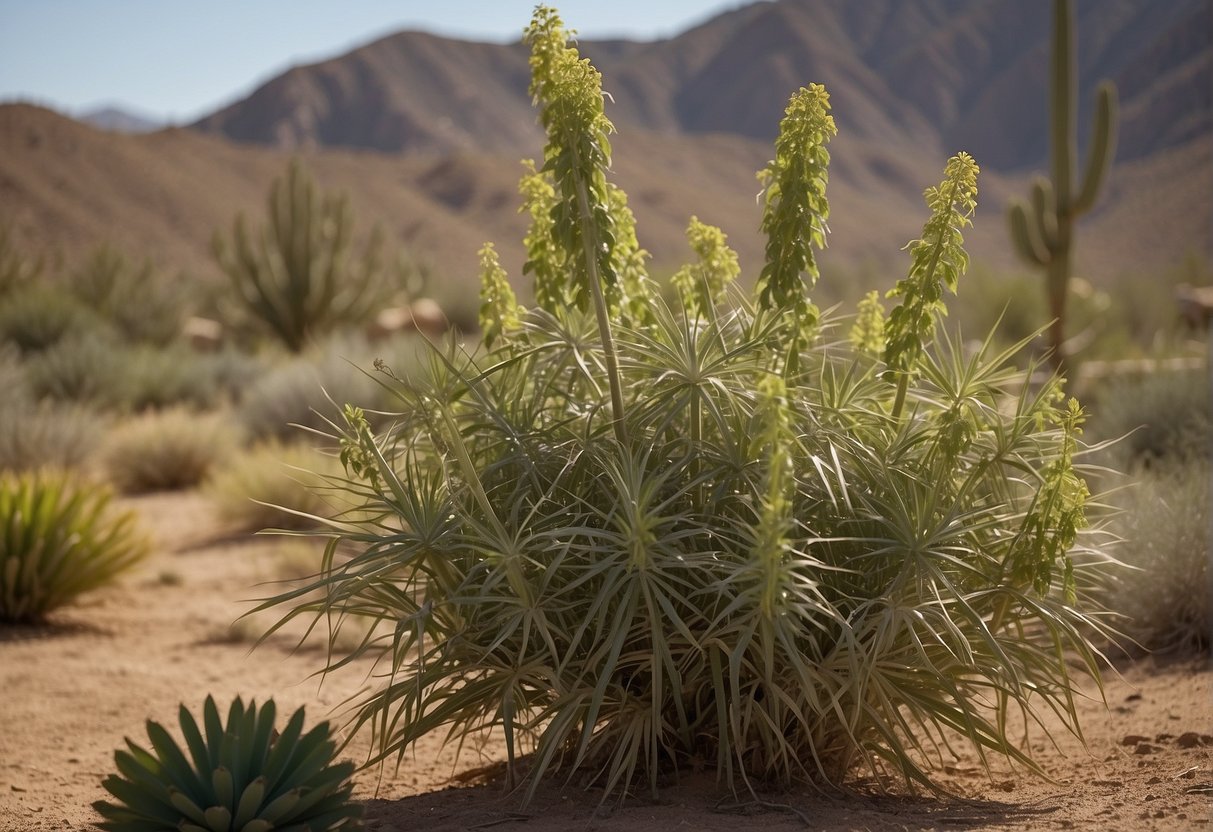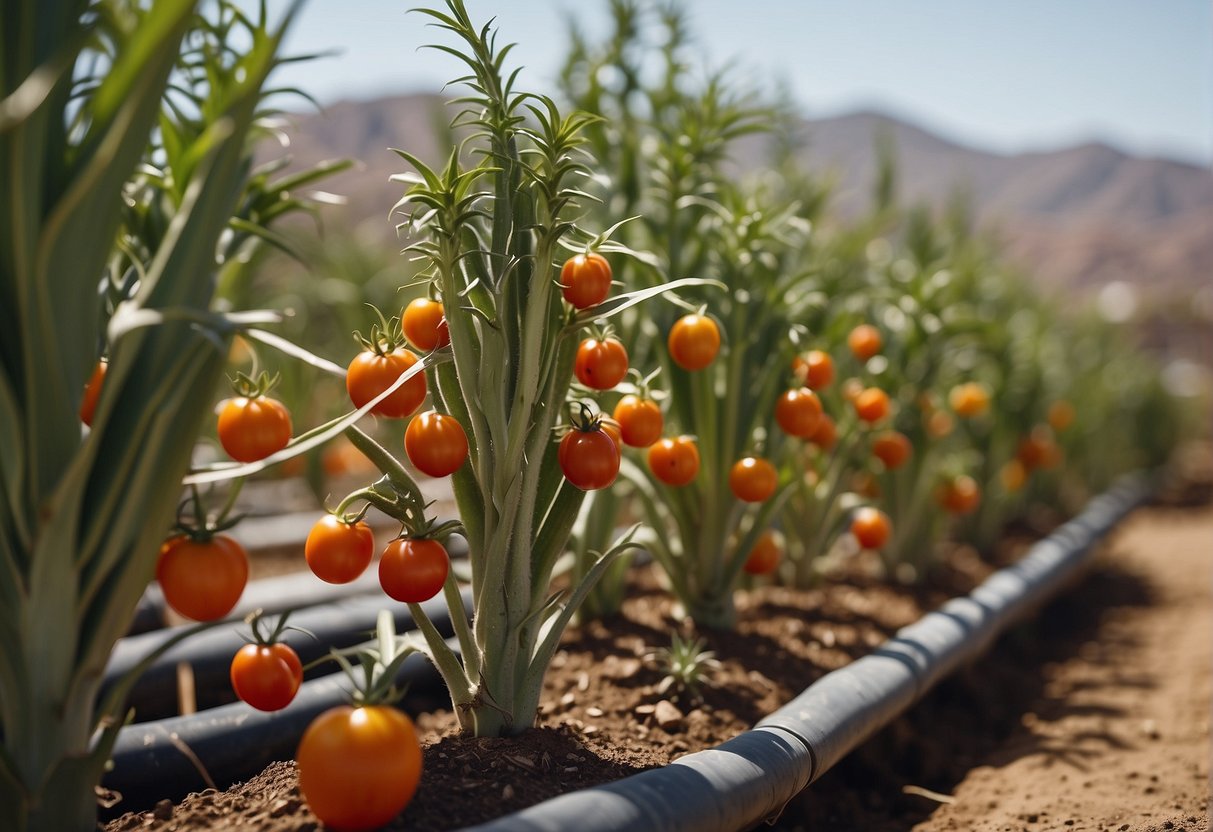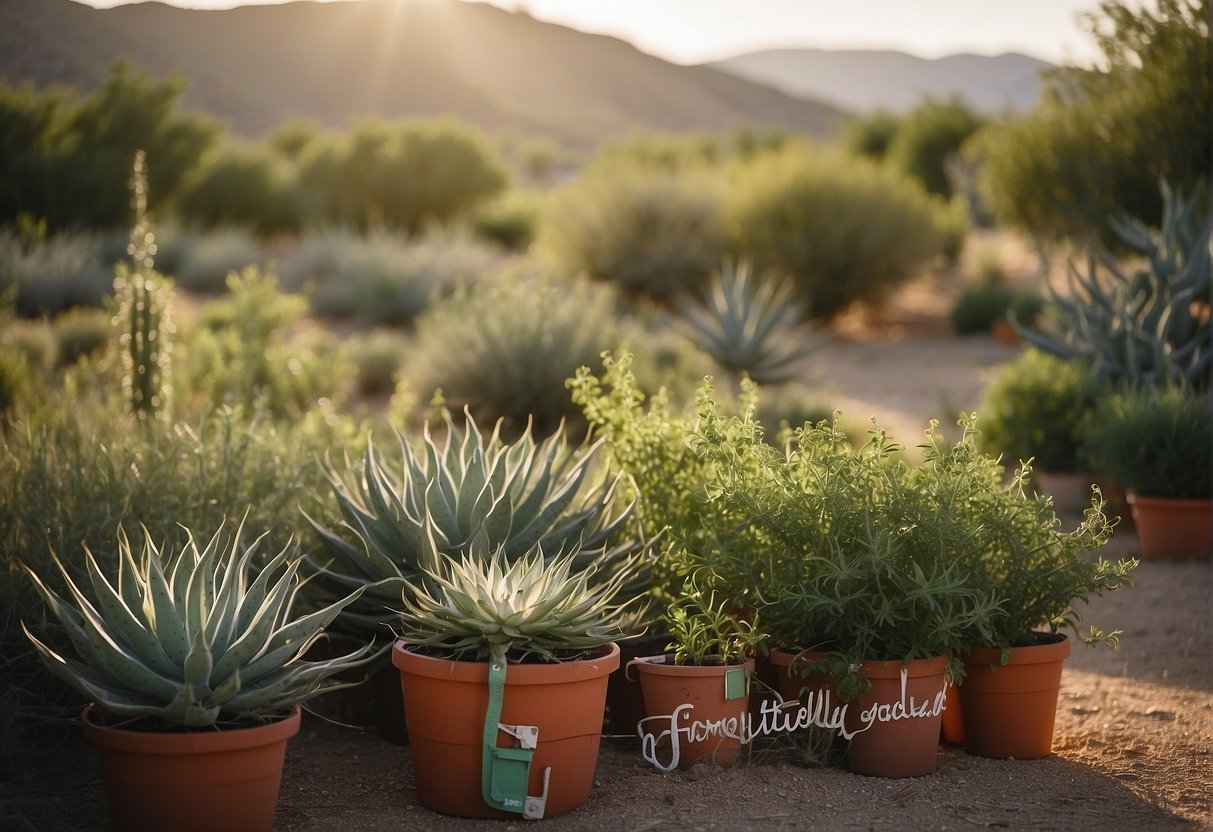What to Do with Your Tomato Plants in Yucca Valley: Expert Tips
As a gardener residing in Yucca Valley, you might be pondering the best practices for cultivating your tomato plants. The task of nurturing tomatoes in desert conditions presents its challenges; however, by adopting the appropriate preparatory steps and maintenance measures, a plentiful yield is within reach. This article aims to navigate you through the preparations necessary for your garden to host tomato plants, their subsequent care, and provides responses to common queries.

Before you start planting your tomato seeds, it is important to prepare your garden properly. The desert climate can be harsh on plants, so it is essential to create a suitable environment for your tomatoes to grow. We will discuss the best soil type, planting location, and watering techniques to help your tomato plants thrive in Yucca Valley. Once your garden is ready, we will guide you through the steps of caring for your tomato plants, including fertilizing, pruning, and pest control.
Key Takeaways
- Proper preparation and care are essential for growing tomato plants in Yucca Valley.
- Choosing the right soil type, planting location, and watering techniques can help your tomato plants thrive.
- Regular fertilizing, pruning, and pest control are key to maintaining healthy tomato plants in Yucca Valley.
Preparing Your Garden for Tomato Plants
If you want to grow healthy and productive tomato plants in Yucca Valley, you need to start with a solid foundation. Preparing your garden for tomato plants involves careful selection of tomato varieties, understanding soil requirements, and timing your planting.
Selecting the Right Tomato Varieties
There are many different tomato varieties to choose from, each with its own unique characteristics. When selecting tomato varieties for your garden in Yucca Valley, consider factors such as disease resistance, fruit size and shape, and flavor. Some popular tomato varieties that do well in this region include Early Girl, Celebrity, and Better Boy.
Understanding Soil Requirements
Tomatoes need well-drained soil that is rich in organic matter. Before planting, test your soil to determine its pH level and nutrient content. If necessary, amend the soil with compost or other organic matter to improve its texture and fertility. It is also important to ensure that the soil temperature is warm enough for planting, typically around 60-65°F.
Timing Your Planting
In Yucca Valley, the last frost date typically occurs in late February or early March. You should wait until after this date to plant your tomato seedlings. Tomatoes also require direct sunlight for at least 6-8 hours per day, so choose a location in your garden that receives plenty of sunlight during the summer months. Additionally, be sure to provide adequate water and protection from heavy rain or wind.
By following these guidelines and taking the time to properly prepare your garden for tomato plants, you can enjoy a bountiful harvest of delicious, homegrown tomatoes in Yucca Valley.
Caring for Tomato Plants in Yucca Valley

If you’re growing tomato plants in Yucca Valley, you’ll need to take special care to ensure that they thrive in the hot, dry climate. Here are some tips to help you care for your tomato plants and enjoy a bountiful harvest.
Watering and Mulching Techniques
Tomatoes need consistent moisture to grow, so be sure to water your plants regularly. In Yucca Valley, where temperatures can reach over 100 degrees Fahrenheit, you may need to water your plants every day during the hottest months of the year. Mulching around your plants can help to retain moisture in the soil and keep the roots cool. Consider using organic mulch, such as straw or shredded leaves, to help improve soil quality and reduce weed growth.
Managing Pests and Diseases
Tomato plants can be vulnerable to a variety of pests and diseases. To help prevent problems, be sure to keep your garden clean and free from debris. Remove any diseased or damaged foliage promptly, and consider using organic pest control methods, such as neem oil or insecticidal soap, to help manage insect infestations.
Supporting Growth and Fertilization
Tomatoes require regular fertilization to produce healthy foliage and fruit. Consider using a balanced fertilizer that contains nitrogen, phosphorus, and potassium, as well as other essential micronutrients. You can also use compost to help improve soil health and provide additional nutrients to your plants. To support healthy growth, consider using stakes, cages, or trellises to help your tomato plants stay upright and avoid damage from wind or heavy fruit.
By following these tips and taking good care of your tomato plants, you can enjoy a bountiful harvest of delicious, ripe tomatoes all season long.
Frequently Asked Questions

How should you prune the leaves of your tomato plants for optimal growth?
Pruning the leaves of your tomato plants can help improve their overall growth and health. It is recommended to remove the lower leaves of the plant as they start to yellow and wilt. This will help prevent diseases from spreading and allow the plant to focus its energy on producing fruit. Additionally, it is important to remove any suckers that grow between the main stem and branches. This will help the plant direct its energy towards producing larger, healthier fruit.
What is the best time of year to plant tomatoes in Yucca Valley?
The best time to plant tomatoes in Yucca Valley is in the early spring, around March or April. This will give the plants enough time to mature and produce fruit before the extreme heat of the summer sets in. It is important to avoid planting tomatoes during the hottest months of the year, as the high temperatures can cause the fruit to become sunburned and the plants to become stressed.
Can tomato plants be overwintered successfully in Yucca Valley’s climate?
Tomato plants are not typically able to survive the winter in Yucca Valley’s climate. However, with proper care and protection, it is possible to overwinter them successfully. One option is to move the plants indoors or to a greenhouse during the colder months. Alternatively, you can cover the plants with a frost blanket or other protective covering to help insulate them from the cold.
What steps should be taken to care for tomato plants at the end of their growing season?
At the end of the growing season, it is important to remove any remaining fruit from the plants and cut back the foliage. This will help prevent diseases from spreading and make it easier to prepare the plants for the next growing season. You should also remove any stakes or cages and clean them thoroughly before storing them for the winter.
Is it possible to cultivate tomatoes throughout the year in Yucca Valley?
While it is technically possible to cultivate tomatoes throughout the year in Yucca Valley, it can be challenging due to the extreme heat of the summer and the cooler temperatures of the winter. It is recommended to focus on planting tomatoes during the cooler months of the year and taking steps to protect them from the heat during the summer.
How should you prepare the soil for next season after harvesting tomatoes?
After harvesting your tomatoes, it is important to prepare the soil for the next growing season. This can be done by adding compost or other organic matter to the soil to help replenish nutrients. You should also test the soil pH and adjust it as necessary to ensure optimal growing conditions for your plants. Additionally, it is a good idea to rotate your crops each year to help prevent the buildup of pests and diseases in the soil.


